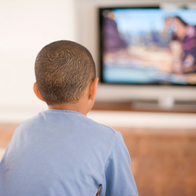|
Though it feels like we’ve been thrown headlong into a world of digital communication, engaging in way more online interactions than our previous normal, it is important to pay attention in this new normal to the amount and quality of screen time our children are allowed to use in any given day. Watching television shows and movies, whether for school-related or entertainment purposes, should be determined and agreed upon by both adults and children, so that there is a time to turn on and a time to turn off. Due to the fact that video chatting is now the new normal for social interaction, this amount of screen time needs to be taken into account as well. Any screen time should be purposeful and meaningful, not random and passive. Many of the media gurus have stated that this challenging pandemic reality warrants flexibility with screen time for children, but that does not mean that there should be no control. Parents need to monitor how much, how long and what their children are watching on television and computer screens. The ideal would be for parents or caregivers to sit with children ages five and under, or at least be within earshot, so that they can discuss and reinforce concepts being presented on the screen. Older children may not need parents to sit with them but they would benefit from parental monitoring and discussion of shows they are watching and video games that they are playing. Watching TV should not be the default for when there seems to be nothing to do. Drawing or colouring while listening to music, or reading a book or magazine, also provide very pleasant ways to pass the time. An important note to remember here is that children model the behaviour of the adults around them. They are less likely to do what you tell them to do and more likely to imitate what you do. So if an adult in the home is spending all day glued to the screen of their phone or tablet, the child will see this as a desirable activity and want to do the same. Modeling positive and constructive behaviour can go a long way in helping children to develop desired behaviours. This stay-at-home regulation has provided an ideal opportunity for parents to help their children develop their self-discipline and self-confidence by learning to manage their chores, their learning and their entertainment activities. Children may well emerge from this pandemic experience as more mature in their thinking, more responsible in their behaviour, and with an improved sense of self. The most important thing that parents and other caregivers can provide for their children in this pandemic world (and really in any world) is a feeling of safety and security that comes with unconditional love and support. This can be demonstrated by maintaining a connection with each child which is fostered by listening (without criticism or judgement) to their thoughts, concerns, apprehensions, desires, and talking to them in an empathic, supportive and caring manner. Tuning in to their moods and allowing them to express their emotions, whether negative or positive, and also whether the listening adult agrees with them or not, will help them significantly to feel more secure and truly cared for.
0 Comments
Leave a Reply. |
Author Lystra Mahabir-Mongroo BA/BSW, MSW. Archives
April 2021
Categories |


 RSS Feed
RSS Feed
